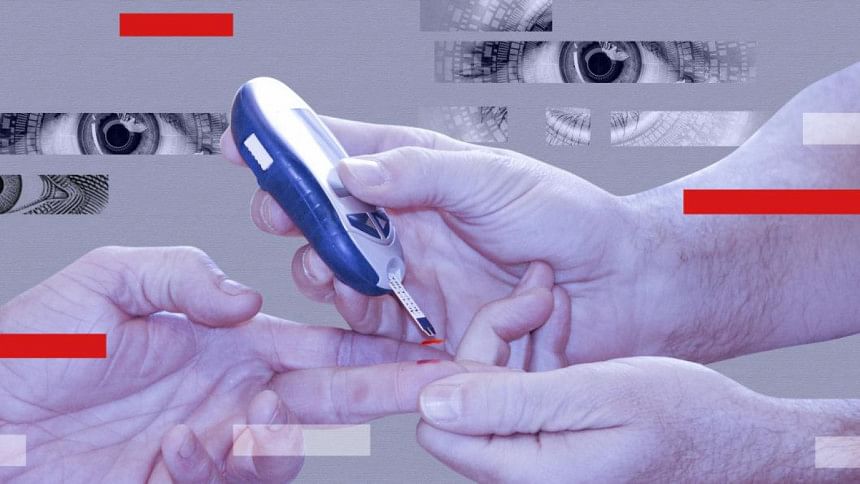Uncontrolled diabetes: A threat to vision

There are several medical conditions that affect the eyes. But diabetes poses high risk of vision loss and even blindness.
Diabetes affects several organs, like kidney and peripheral nerves, but many of us are unaware of its effect on the eyes.
People who have had diabetes for many years are at risk of a condition known as Diabetic Retinopathy (DR), the fifth leading cause of blindness worldwide.
"If we start with the eyelid, an uncontrolled diabetes can cause a sudden drooping of it, which is known as 'ptosis'. It can cause paralysis of the muscles of eyes, resulting in squinting. Uncontrolled blood sugar can also cause early cataract, at a very young age," said Dr Sabrina Rahmatullah, a consultant Vitreo-Retina and Phaco Surgeon of Bangladesh eye Hospital.
"As diabetes is a microvascular disease, which means it affects small vessels of the body, it can damage small blood vessels of retina and cause dot shaped bleeding," Dr Sabrina said.
Diabetes can also affect the nerve which supplies visual information to our eyes, known as the optic nerve.
During the Covid-19 period, another eye problem -- Orbital mucormycosis -- is surfacing. It's a rare fungal infection that affects patients with altered immunity from diabetic ketoacidosis, said Dr Ferdous Akhter Jolly, associate professor of ophthalmology department, BIRDEM General Hospital and Ibrahim Medical College.
According to Dr Ferdous, other vision hampering complications in diabetic patients are bacterial corneal infection, frequent spectacle power change and increased incidence of glaucoma.
Prevention is the best remedy to prevent eye problems. So, proper control of diabetes through regular exercise, balanced diet, medicine for diabetes, control of blood pressure and cholesterol can help lower the risk for vision loss, Dr Ferdous said.
"Comprehensive dilated eye examination to check retina at least once a year and regular follow up can help patients prevent and delay vision loss," she added.
A patient suffering from DR must go for investigations and start treatment as advised by doctor as early as possible. Delay in starting treatment may lead to severe vision threatening complications and ultimately blindness.

 For all latest news, follow The Daily Star's Google News channel.
For all latest news, follow The Daily Star's Google News channel. 



Comments